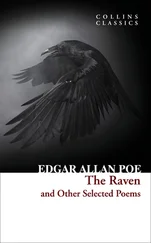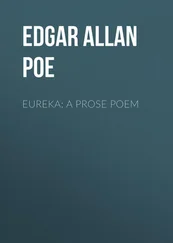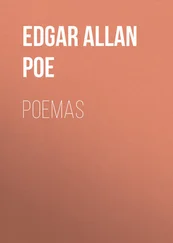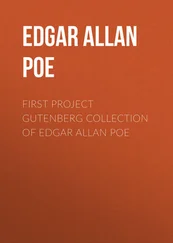“ Adolphe Le Bon , clerk to Mignaud et Fils, deposes that on the day in question, about noon, he accompanied Madame L’Espanaye to her residence with the 4000 francs, put up in two bags. Upon the door being opened, Mademoiselle L. appeared and took from his hands one of the bags, while the old lady relieved him of the other. He then bowed and departed. Did not see any person in the street at the time. It is a by-street—very lonely.
“ William Bird , tailor, deposes that he was one of the party who entered the house. Is an Englishman. Has lived in Paris two years. Was one of the first to ascend the stairs. Heard the voices in contention. The gruff voice was that of a Frenchman. Could make out several words, but cannot now remember all. Heard distinctly ‘ sacré ’ and ‘mon Dieu.’ There was a sound at the moment as if of several persons struggling—a scraping and scuffling sound. The shrill voice was very loud—louder than the gruff one. Is sure that it was not the voice of an Englishman. Appeared to be that of a German. Might have been a woman’s voice. Does not understand German.
“Four of the above-named witnesses, being recalled, deposed that the door of the chamber in which was found the body of Mademoiselle L. was locked on the inside when the party reached it. Every thing was perfectly silent—no groans or noises of any kind. Upon forcing the door no person was seen. The windows, both of the back and front room, were down and firmly fastened from within. A door between the two rooms was closed but not locked. The door leading from the front room into the passage was locked, with the key on the inside. A small room in the front of the house, on the fourth story, at the head of the passage, was open, the door being ajar. This room was crowded with old beds, boxes, and so forth. These were carefully removed and searched. There was not an inch of any portion of the house which was not carefully searched. Sweeps were sent up and down the chimneys. The house was a four-story one, with garrets ( mansardes ). A trap-door on the roof was nailed down very securely—did not appear to have been opened for years. The time elapsing between the hearing of the voices in contention and the breaking open of the room door was variously stated by the witnesses. Some made it as short as three minutes—some as long as five. The door was opened with difficulty.
“ Alfonzo Garcio , undertaker, deposes that he resides in the Rue Morgue. Is a native of Spain. Was one of the party who entered the house. Did not proceed up stairs. Is nervous, and was apprehensive of the consequences of agitation. Heard the voices in contention. The gruff voice was that of a Frenchman. Could not distinguish what was said. The shrill voice was that of an Englishman—is sure of this. Does not understand the English language, but judges by the intonation.
“ Alberto Montani , confectioner, deposes that he was among the first to ascend the stairs. Heard the voices in question. The gruff voice was that of a Frenchman. Distinguished several words. The speaker appeared to be expostulating. Could not make out the words of the shrill voice. Spoke quick and unevenly. Thinks it the voice of a Russian. Corroborates the general testimony. Is an Italian. Never conversed with a native of Russia.
“Several witnesses, recalled, here testified that the chimneys of all the rooms on the fourth story were too narrow to admit the passage of a human being. By ‘sweeps’ were meant cylindrical sweeping-brushes, such as are employed by those who clean chimneys. These brushes were passed up and down every flue in the house. There is no back passage by which any one could have descended while the party proceeded up stairs. The body of Mademoiselle L’Espanaye was so firmly wedged in the chimney that it could not be got down until four or five of the party united their strength.
“ Paul Dumas , physician, deposes that he was called to view the bodies about daybreak. They were both then lying on the sacking of the bedstead in the chamber where Mademoiselle L. was found. The corpse of the young lady was much bruised and excoriated. The fact that it had been thrust up the chimney would sufficiently account for these appearances. The throat was greatly chafed. There were several deep scratches just below the chin, together with a series of livid spots which were evidently the impression of fingers. The face was fearfully discolored, and the eyeballs protruded. The tongue had been partially bitten through. A large bruise was discovered upon the pit of the stomach, produced, apparently, by the pressure of a knee. In the opinion of M. Dumas, Mademoiselle L’Espanaye had been throttled to death by some person or persons unknown. The corpse of the mother was horribly mutilated. All the bones of the right leg and arm were more or less shattered. The left tibia much splintered, as well as all the ribs of the left side. Whole body dreadfully bruised and discolored. It was not possible to say how the injuries had been inflicted. A heavy club of wood, or a broad bar of iron—a chair—any large, heavy, and obtuse weapon would have produced such results, if wielded by the hands of a very powerful man. No woman could have inflicted the blows with any weapon. The head of the deceased, when seen by witness, was entirely separated from the body, and was also greatly shattered. The throat had evidently been cut with some very sharp instrument—probably with a razor.
“ Alexandre Etienne , surgeon, was called with M. Dumas to view the bodies. Corroborated the testimony, and the opinions of M. Dumas.
“Nothing further of importance was elicited, although several other persons were examined. A murder so mysterious, and so perplexing in all its particulars, was never before committed in Paris—if indeed a murder has been committed at all. The police are entirely at fault—an unusual occurrence in affairs of this nature. There is not, however, the shadow of a clew apparent.”
The evening edition of the paper stated that the greatest excitement still continued in the Quartier St. Roch—that the premises in question had been carefully re-searched, and fresh examinations of witnesses instituted, but all to no purpose. A postscript, however, mentioned that Adolphe Le Bon had been arrested and imprisoned—although nothing appeared to criminate him beyond the facts already detailed.
Dupin seemed singularly interested in the progress of this affair—at least so I judged from his manner, for he made no comments. It was only after the announcement that Le Bon had been imprisoned, that he asked me my opinion respecting the murders.
I could merely agree with all Paris in considering them an insoluble mystery. I saw no means by which it would be possible to trace the murderer.
“We must not judge of the means,” said Dupin, “by this shell of an examination. The Parisian police, so much extolled for acumen , are cunning, but no more. There is no method in their proceedings, beyond the method of the moment. They make a vast parade of measures; but, not unfrequently, these are so ill-adapted to the objects proposed, as to put us in mind of Monsieur Jourdain’s calling for his robe-de-chambre—pour mieux entendre la musique . The results attained by them are not unfrequently surprising, but, for the most part, are brought about by simple diligence and activity. When these qualities are unavailing, their schemes fail. Vidocq, for example, was a good guesser, and a persevering man. But, without educated thought, he erred continually by the very intensity of his investigations. He impaired his vision by holding the object too close. He might see, perhaps, one or two points with unusual clearness, but in so doing he, necessarily, lost sight of the matter as a whole. Thus there is such a thing as being too profound. Truth is not always in a well. In fact, as regards the more important knowledge, I do believe that she is invariably superficial. The depth lies in the valleys where we seek her, and not upon the mountain-tops where she is found. The modes and sources of this kind of error are well typified in the contemplation of the heavenly bodies. To look at a star by glances—to view it in a side-long way, by turning toward it the exterior portions of the retina (more susceptible of feeble impressions of light than the interior), is to behold the star distinctly—is to have the best appreciation of its lustre—a lustre which grows dim just in proportion as we turn our vision fully upon it. A greater number of rays actually fall upon the eye in the latter case, but in the former, there is the more refined capacity for comprehension. By undue profundity we perplex and enfeeble thought; and it is possible to make even Venus herself vanish from the firmanent by a scrutiny too sustained, too concentrated, or too direct.
Читать дальше










